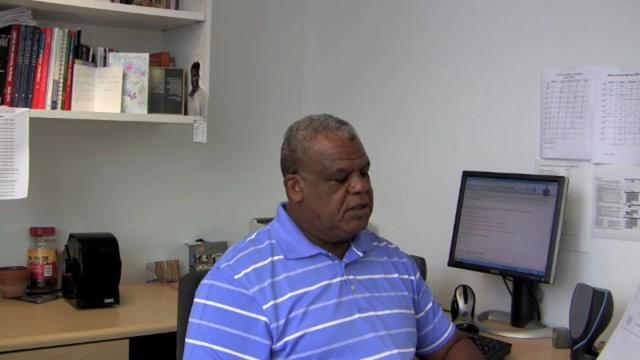As freshmen and new students, college could be intimidating but with the right tips and suggestions, fear can turn into a rewarding academic experience. In order for students to be successful in college, Robert L. Stoneham, associate director of the Learning Resource Center says, “[students] have to make their education number one.” Students need to prioritize their lives, putting their studies before everything else.
Stoneham says the types of students who usually do well “are always looking for opportunities to study more” and are even a little scared but “the fear is really important because it keeps them from becoming complacent and waiting for something to happen.”
Stoneham has many tips to share with students but emphasizes on time management explaining how students should not wait.
“When students are given assignments, they should tackle it right away even if the student does a little bit at a time,” says Stoneham.
For example, if a student is given many pages to read, they should break it up, reading a few pages a day. Stoneham calls this ‘salami the chapter’ because it is breaking up the chapters into units. Stoneham adds, “a little bit is easier to digest than a lot.” When attending class, Stoneham suggests students sit in the front because this encourages students to stay awake in class if sleepy and can avoid distractions.
In note taking, Stoneham suggests students write in paragraphs instead of outline style and skip lines when you miss information. Skipping lines reminds students to go back when they need more clarification. Stoneham says that this gives students an opportunity to ask the professor questions and get a sense of what material will be on the exam.
When students study, Stoneham suggests doing it in front of a blank wall because other places such as a bedroom is filled with distractions and “it’s good to study in a place where it inspires a sense of study” such as a study lab or the library. On the other hand, Librarian Jennie Quiñonez-Skinner from the Oviatt Library suggests working in groups saying, “I work better when I have a group suffering with me for late night studying, reading drafts and papers and moral support.”
The Oviatt Library has group and individual study rooms, extended hours during finals, and a newly re-designed study area on the first floor with couches and laptop friendly chairs. Quiñonez-Skinner says the library manages course reserves where professors place books and articles on reserve for students to check out and says the Oviatt Library has 23 librarians ready to help students find sources for their projects. Starting in Fall 2009, there will be an Assignment Calculator which will allow students to enter their assignment due date and type of project and the calculator will outline the steps to their research project. For more information about services like these and more at the library visit http://library.csun.edu/prospectivestudents.html
There are many times when students are faced with deadlines and an invitation to go out sounds too good to turn down. Stoneham says students need to learn to say ‘no.’ He says people do not like to say ‘no’ because “everyone wants to be heroes” and will “say yes to make everyone happy.” Therefore, Stoneham suggests students say ’no’ with a smile because it sends conflicting messages because “no is rejection, but a smile lets the person know you like them.”
The best thing for students is to go to class regularly. Stoneham suggests students view their lectures as conversation. Therefore, if students “miss one part of that conversation, the next part doesn’t make much sense.” Students going to class regularly benefit because they are not just writing notes on the information but listening to it too and going over the material repeatedly guarantees better results at being successful in your courses.
Quiñonez-Skinner says students should “Plan ahead and devote time for writing or digesting difficult material” and says “cramming is something we all do in college, but you get more out of your classes if you are engaged the entire semester.”
For incoming freshmen and new students who are undecided and have no idea what they want to major in, no need to stress because according to Stoneham, “the average student changes their major three times.” Stoneham explains some students are still exploring who they are what they want throughout their college experience.
The best advice Stoneham has for a student is study hard and be passionate and says, “You gotta want it.” Stoneham shares that some students have the intellectual ability to do well but they do not want to do anything and anyone can do anything if they work hard. Stoneham says college is the opportunity to learn about yourself and sometimes it is not fun but “you have to have passion for the times when there is no passion.”





